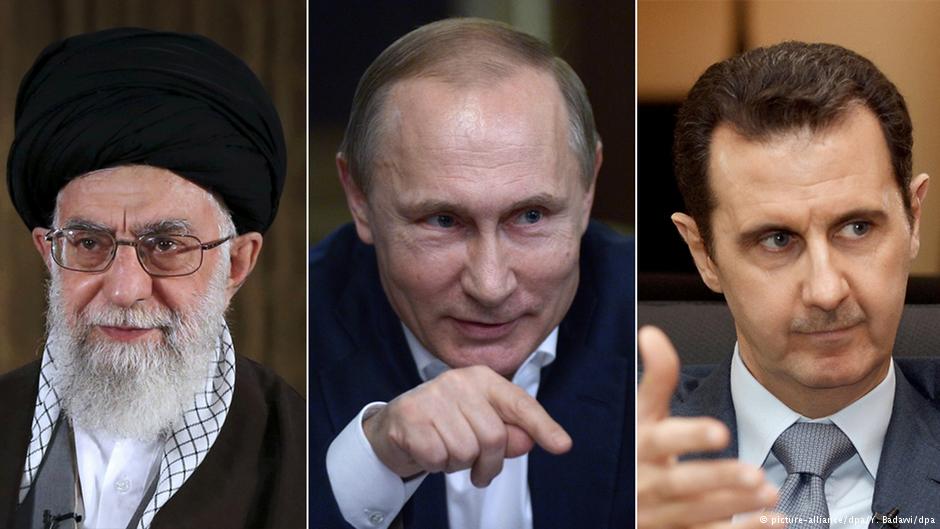
Source: Qantara.de
Syed Ali Zia Jaffery
Earlier this month, Syrian rebels seized Damascus, bringing an end to the rule of Syria’s longtime President, Bashar al-Assad. This momentous development is poised to reshape the geopolitics of the Middle East while also attenuating the influences of regional and extra-regional powers. Both Iran and Russia, countries that were the biggest backers of the Assad regime, not least during the 13-year-long civil war, have lost a key source of exercising power in the Middle East. For Iran, the Assad-controlled Syria was critical to sustaining its highly touted Axis of Resistance, and therefore, losing Assad is a big blow. As far as Russia is concerned, its inability to save Assad, the protector of its military bases, raises many a question mark on its power while seriously denting its prestige at the global stage. These major setbacks, however, could bring Tehran and Moscow closer to one another. There are three reasons why this might be the case and useful for both.
First, Assad’s ouster could not have been effected at a worse time for both Iran and Moscow. Even before the blitz in Syria, the main planks of Iran’s Axis of Resistance, Hezbollah and Hamas, had been considerably weakened by Israel’s kinetic operations, including inside of Iranian territory. This had dealt a severe blow to Iran’s asymmetric approaches to fighting its nemeses. Russia, on the other hand, is distracted and bogged down by the war in Ukraine. Therefore, losing its only ally in the Middle East may undermine its position vis-à-vis the incoming Trump administration. Writing days ahead of Assad’s fall, Hanna Notte dubbed rebels’ advances as tactical setbacks apropos of the war in Ukraine but added that battlefield dynamics in Syria will determine whether or not they “turn into strategic headaches.” All this has curtailed both countries’ freedoms of action, something that will contribute to exacerbating their insecurities. Therefore, such fears, coupled with their deep-seated hatred towards the West, will further bolster their relations.
Second, both Iran and Russia will want to show defiance despite sustaining the aforementioned blows. For Iran, it is important to show that it is a confident, daring actor in the region, and that it is unfazed by the changing dynamics in Syria and Lebanon. At a time when Israel is not only claiming credit for the turn of events in Syria but also carrying out airstrikes across that country, Iran cannot afford to come across as a bruised and battered party. Therefore, strengthening ties with Russia will only go on to send a strong signal. For Russia, enhancing its partnership with Iran will help it salvage its pride. In other words, by throwing its weight behind Iran, Russia can somewhat compensate for its failure to save its ally in Assad.
Third, Iran and Russia can improve coordination and solidify their relations in order to fill the power vacuum in Syria. With a view to protecting its military assets in Syria and, by extension, continuing operations in Africa, Russia has already reached out to the new leadership in that country. Iran, too, has said it is ready to work with all parties to establish peace, security, and stability in Syria. What’s more, Hezbollah and Hamas have expressed concerns and sent positive messages to the Syrian people, respectively, after Assad’s departure. These relatively moderate responses are reflective of a desire to play important roles in shaping the future politics in Syria. Both Iran and Russia cannot leave their former bastion to its own devices. An anti-Iran Syria will be curtains for Tehran and Hezbollah, and therefore, establishing a working relationship with Syrian rebels will be of paramount importance. While both Russia and Iran might not be able to cultivate relations in a manner they did with Assad, they can stop them from being hostile to them. In addition, as Nicole Grajewski writes, Iran might seek to exploit the apprehensions of Syrian Kurds about Turkiye’s growing influence in Syria. Russia, too, could leverage its old ties with the Syrian Kurds, something which could provide yet another window of opportunity for increasing the Tehran-Washington bonhomie.
However, as the current milieu is rife with risks and uncertainties, Tehran and Moscow will have their work cut out. Consequently, a lot will depend on Iran’s flexibility, Israel’s actions in the days to come, and the way the incoming Trump administration approaches the situation. Yet, given their stakes in Syria and growing, wide-ranging partnership, Iran and Russia are likely to bank on each other more than ever. Moreover, commentators have rightly highlighted that, in order to hurt the West, Russia has built connections with the Axis of Resistance. Thus, Moscow will look to ensure that this all-important Axis does not crumble. Iran, for its part, will likely continue supplying missiles to Russia, which will continue to add depth to the military dimension of their strategic relations.
All in all, while the recent dramatic, colossal changes in Syria have jolted both Russia and Iran, they have set the stage for adding more vigor to their relations. For a variety of tactical and strategic reasons, a relatively friendly Syria is critical for both partners, making their cooperation all the more vital.
Syed Ali Zia Jaffery is Associate Editor, Pakistan Politico.




